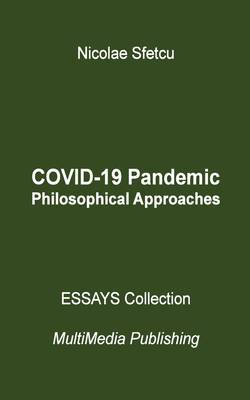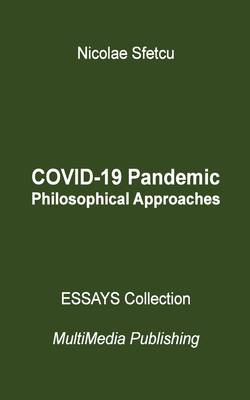
- Afhalen na 1 uur in een winkel met voorraad
- Gratis thuislevering in België vanaf € 30
- Ruim aanbod met 7 miljoen producten
- Afhalen na 1 uur in een winkel met voorraad
- Gratis thuislevering in België vanaf € 30
- Ruim aanbod met 7 miljoen producten
Zoeken
€ 34,45
+ 68 punten
Uitvoering
Omschrijving
The paper begins with a retrospective of the debates on the origin of life: the virus or the cell? The virus needs a cell for replication, instead the cell is a more evolved form on the evolutionary scale of life. In addition, the study of viruses raises pressing conceptual and philosophical questions about their nature, their classification, and their place in the biological world. The subject of pandemics is approached starting from the existentialism of Albert Camus and Sartre, the replacement of the exclusion ritual with the disciplinary mechanism of Michel Foucault, and about the Gaia hypothesis, developed by James Lovelock and supported in the current pandemic by Bruno Latour. The social dimensions of pandemics, their connection to global warming, which has led to an increase in infectious diseases, and the deforestation of large areas, which have caused viruses to migrate from their native area (their "reservoir") are highlighted below. The ethics of pandemics is approached from several philosophical points of view, of which the most important in a crisis of such global dimensions is utilitarianism which involves maximizing benefits for society in direct conflict with the usual (Kantian) view of respect for people as individuals. After a retrospective of the COVID-19 virus that caused the current pandemic, its life cycle and its history, with an emphasis on the philosophy of death, the concept of biopower initially developed by Foucault is discussed, with reference to the practice of modern states of control of the populations and the debate generated by Giorgio Agamben who states that what is manifested in this pandemic is the growing tendency to use the state of emergency as a normal paradigm of government. An interesting and much debated approach is the one generated by the works of Slavoj Zizek, who states that the current pandemic has led to the bankruptcy of the current "barbaric" capitalism.
Specificaties
Betrokkenen
- Auteur(s):
- Uitgeverij:
Inhoud
- Aantal bladzijden:
- 164
- Taal:
- Engels
Eigenschappen
- Productcode (EAN):
- 9781715909550
- Verschijningsdatum:
- 13/05/2021
- Uitvoering:
- Paperback
- Formaat:
- Trade paperback (VS)
- Afmetingen:
- 127 mm x 203 mm
- Gewicht:
- 167 g

Alleen bij Standaard Boekhandel
+ 68 punten op je klantenkaart van Standaard Boekhandel
Beoordelingen
We publiceren alleen reviews die voldoen aan de voorwaarden voor reviews. Bekijk onze voorwaarden voor reviews.











